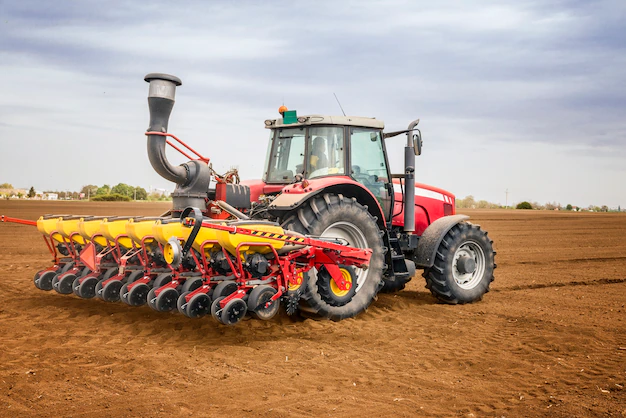Tractors play a vital role in modern farming and agriculture. They are versatile, powerful machines that are used for a wide range of tasks, contributing to increased productivity and efficiency in the agricultural sector. Here are some of the key roles tractors play in farming:
- Soil preparation: Tractors are used for primary and secondary tillage operations, such as plowing, harrowing, and cultivating. They help break up the soil, incorporate fertilizers and amendments, and create a favorable seedbed for planting.
- Planting and seeding: Tractors are equipped with specialized machinery, such as seed drills and planters, which enable farmers to efficiently sow seeds in rows or using precision techniques. This ensures proper spacing and depth for optimal plant growth.
- Crop maintenance: Tractors are used for various activities throughout the crop growth cycle. They are employed for tasks like fertilization, pesticide and herbicide application, irrigation, and weed control. Tractor-mounted sprayers and spreaders make these operations more efficient and accurate.
- Harvesting: Tractors are often utilized for harvesting crops. They can tow or operate harvesters, which are designed for specific crops like grains, fruits, or vegetables. Harvesters efficiently cut, gather, and separate the edible parts from the plants, reducing manual labor and improving the speed of the harvest.
- Transportation: Tractors are used to move agricultural inputs, products, and equipment around the farm. They can tow trailers, wagons, or other implements for transporting harvested crops, animal feed, and farm supplies. Tractors equipped with loaders or forklift attachments can handle heavier loads with ease.
- Livestock management: Tractors are essential for livestock farming as well. They assist in tasks such as feeding animals by towing feed mixers or distributing hay bales. Tractors can also operate equipment for cleaning barns, spreading manure, and maintaining pastures.
- Energy and power generation: Some tractors are designed with power take-off (PTO) capabilities, allowing them to generate power for other farm machinery and equipment. PTO-driven implements, such as pumps, generators, and mills, can be connected to tractors, providing energy for various operations.
Join 'Farmers Mag' WhatsApp Channel
Get the latest Farming news and tips delivered straight to your WhatsApp
CLICK HERE TO JOIN






